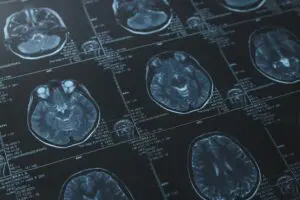Can Medical Malpractice Cause a Stroke?
Understanding Strokes: Types, Causes, Treatments, and Medical Malpractice
 Strokes are critical medical emergencies that require swift and accurate treatment to avoid lasting damage. We will examine various stroke types, their causes, available treatments, and the impact of medical malpractice.
Strokes are critical medical emergencies that require swift and accurate treatment to avoid lasting damage. We will examine various stroke types, their causes, available treatments, and the impact of medical malpractice.
Types of Strokes
Delays in treatment can result in permanent disability or death. Stroke symptoms are not unique and can mimic other health issues, leading to potential misdiagnosis of stroke. Common signs of a stroke include:
- Weakness or numbness, particularly on one side of the body
- Paralysis
- Tingling in the arms or legs
- Sudden loss of leg strength
- Severe headache
- Loss of balance or coordination
- Slurred speech
- Inability to speak or understand speech
- Vision changes, such as blurred or double vision
- Dizziness
- Fainting
- Loss of vision
- Death
Strokes can vary in severity from mild to life-threatening, with some potentially resulting in death.
Causes and Treatments of Strokes
Strokes occur due to disruptions in the blood supply or blood flow to the brain, leading to oxygen deprivation and damage to brain cells. There are two main types of strokes:
- Ischemic Strokes: These account for about 87% of all strokes. They happen when a blood clot obstructs a blood vessel supplying the brain. Causes include blood clotting disorders and atherosclerosis (buildup of fatty deposits in the arteries). Conditions like atrial fibrillation (an irregular heartbeat) can also increase stroke risk.
- Hemorrhagic Strokes: These occur when a blood vessel in the brain ruptures, leading to bleeding. Causes include high blood pressure, brain aneurysms, or trauma.
Timely treatment is imperative to mitigate stroke damage. The approach varies based on the stroke type:
- Ischemic Stroke: Treatment aims to restore blood flow to the brain. This can be achieved with clot-busting medications like tPA (tissue plasminogen activator) if administered within a specific timeframe from the onset of symptoms. Mechanical thrombectomy, an endovascular procedure to remove the clot, is another option.
- Hemorrhagic Stroke: Treatment focuses on controlling bleeding and reducing pressure on the brain. Surgical interventions might be required to repair damaged blood vessels or alleviate pressure.
Common Medical Errors Leading to Strokes
 Errors in medical care can significantly impact stroke outcomes. Common medical mistakes include:
Errors in medical care can significantly impact stroke outcomes. Common medical mistakes include:
- Misdiagnosis or Delayed Diagnosis:Failing to recognize the signs and symptoms of stroke or misattributing them to other conditions can delay necessary treatment.
- Negligent surgical procedure: a stroke may happen due to a mistake during surgery.
- Improper Treatment: Administering incorrect medication or neglecting appropriate clot-busting treatment can worsen the patient’s condition.
- Negligence in Monitoring: Inadequate monitoring of a stroke patient’s vital signs can result in missed warning signs of an impending stroke.
The Impact of Medical Malpractice on Stroke
Medical malpractice can have severe consequences for stroke patients:
- Permanent Brain Damage: Delayed or incorrect treatment can lead to irreversible brain damage, affecting cognitive and neurological functions.
- Increased Medical Bills: Ongoing medical treatment and rehabilitation for stroke-related disabilities can lead to substantial expenses.
- Loss of Quality of Life: Stroke survivors may face diminished enjoyment, companionship, and the ability to perform daily activities.
- Emotional and Psychological Distress: Survivors might also experience emotional and psychological challenges, such as depression, anxiety, and PTSD.
- Wrongful Death: In severe cases, medical malpractice can result in the patient’s death, imposing significant emotional and financial burdens on the stroke victim’s family.
It’s important to understand that not every negative outcome from a stroke is due to medical malpractice. However, if medical negligence or errors have caused or exacerbated a stroke, legal options are available for seeking compensation.
Proving Medical Malpractice in Stroke Cases
Several key elements must be proven to establish a medical malpractice claim in stroke cases,
- Duty of Care: The healthcare provider must have had a duty to deliver an appropriate standard of care to the patient.
- Deviation from Standard of Care: It must be shown that the healthcare provider deviated from accepted medical practices.
- Causation: There must be a direct link between the deviation from the standard of care and the stroke.
- Damages: The patient must have suffered harm due to the negligence, including cognitive deficits or other neurological impairments.
How a Medical Malpractice Attorney Can Help
An experienced attorney understands the intricacies of medical laws and legal procedures, guiding you through the process to build a strong case.
If you or a loved one has suffered a stroke due to medical negligence, a medical malpractice attorney can assist in several ways:
- Investigating the Case: An attorney will review medical history, consult with cognitive and neurological experts, and gather evidence to establish negligence.
- Filing a Claim: They can help file a medical malpractice lawsuit to seek compensation for medical expenses, lost wages, and pain and suffering.
- Representation in Court: If necessary, an attorney will represent you in court to ensure you receive the maximum compensation you deserve.
- Negotiating with Insurance Companies: Dealing with insurance companies can be overwhelming. An experienced attorney will handle all communications and negotiations to protect your rights.
- Building a Strong Case: Medical malpractice cases require extensive evidence and expert testimony. A skilled medical malpractice attorney in Allentown, Scranton, Reading and Pittsburgh will work with specialists to make a compelling case, linking medical errors to the stroke.
- Maximizing Compensation: Depending on your case, you may be entitled to various types of compensation, including medical bills, future medical costs, lost wages, and pain and suffering. An attorney will strive to ensure you receive the maximum compensation available.
 Having a stroke is just as serious as having a heart attack. So, it’s essential to know the signs of stroke and act quickly. Stroke is the fifth leading cause of death in the United States and is the number one cause of serious adult disability. When medical errors or negligence lead to a stroke, the impact can be devastating.
Having a stroke is just as serious as having a heart attack. So, it’s essential to know the signs of stroke and act quickly. Stroke is the fifth leading cause of death in the United States and is the number one cause of serious adult disability. When medical errors or negligence lead to a stroke, the impact can be devastating.
Call the knowledgeable medical malpractice lawyers in Scranton, Reading, and Pittsburgh at Munley Law to discuss your medical malpractice claim during your free consultation. They will fight to obtain compensation for your recovery and care.









